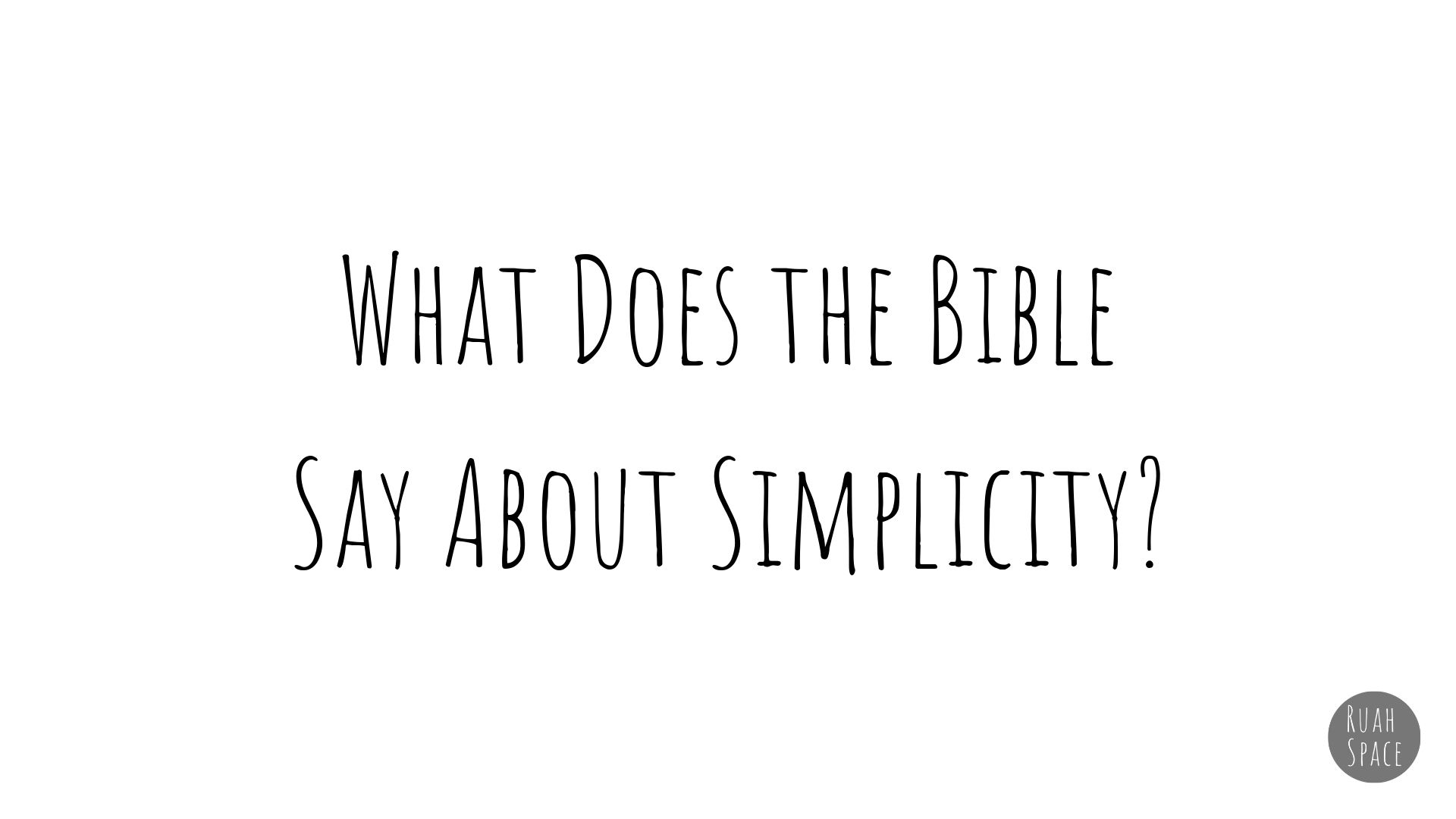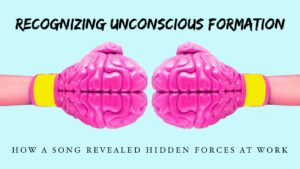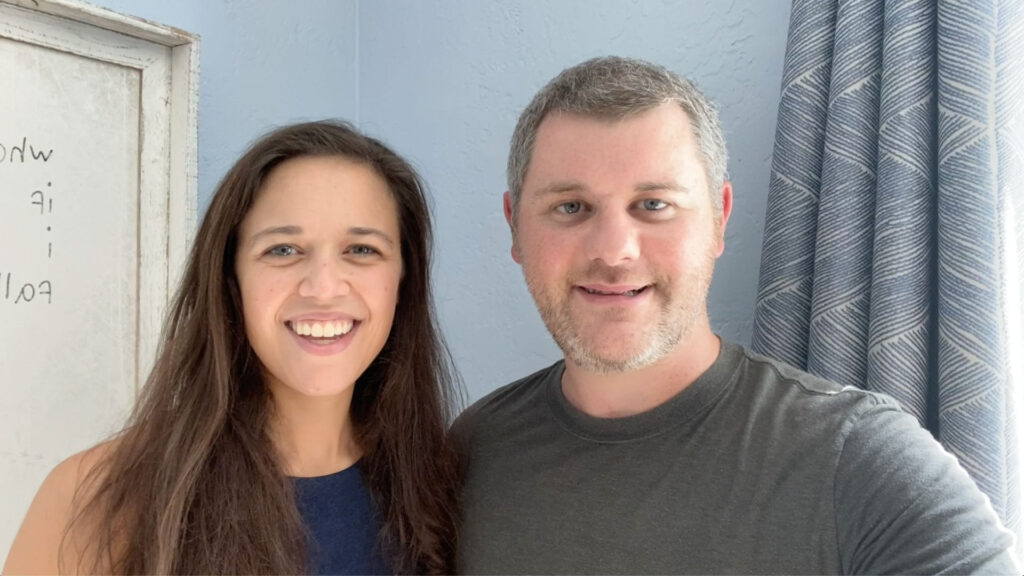When we think of spiritual disciplines, we often think of practices such as prayer or meditation. The discipline of simplicity is not usually thought of in the same way because it manifests itself in a much more external way and deals with our relationship with our possessions. Like the other spiritual practices, however, simplicity invites us to create space both internally and externally so that we can encounter the Holy Spirit and grow in the life God created us for.

The Promises of Stuff
Jesus deeply cared about our relationship to the stuff all around us. In Luke 12:15 He says, “Watch out! Be on your guard against all kinds of greed; life does not consist in an abundance of possessions.” Similarly, in the Sermon on the Mount He tells people to look at the birds and how they don’t store up food for themselves, yet God provides for them (Matthew 6:26). It’s so easy for us to get caught up in believing that our happiness, joy, and fulfillment can be found in the things we own.
The problem is, things that humans create were never meant to hold such weight. We are certainly called to create good things and enjoy them, but when we become too attached to them, they can end up sucking the life out of us.
Idolatry of Stuff
This is why the prophet Isaiah makes fun of idolatry in chapter 44 when he tells the story of a man who cuts down a tree and then burns some of the wood to cook his food while shaping the rest of the wood into an idol that he worships. Isaiah wants us to see how ridiculous it is to worship something that humans made when our ultimate fulfillment and salvation can only come from God.
Of course, we may not literally carve an idol out of wood today. But that isn’t to say we don’t worship idols. Anything that we place our hopes and dreams on, that we believe can provide for us apart from God, is an idol.
It’s easy to get lost in all the stuff we can buy and believe we need it in order to have a good life.
It’s easy for us to fall into the trap of believing that if we could just buy that house, car, or new product that we will be happy and content. It’s easy to get lost in all the stuff we can buy and believe we need it in order to have a good life. Of course, this isn’t to say we shouldn’t own anything (unless you are called to do that), but it is to say that we need to be careful of the importance we allow things to take in our lives.
Focusing on What Matters
We are created for a relationship with God. We are created to enjoy our life but always remember that everything is a gift. We are invited to live a life fully present to God, ourselves, those around us, and creation. When we care too much about our stuff, or simply have too much stuff, it literally chokes out what matters the most.
Think about what it requires to own something. We have to work to make money to purchase it or pay off the debt we take on in order to purchase it, have a place for it (or a storage unit because our house doesn’t have enough space), we need to protect it, possibly insure it, and then we need to dispose of it. That’s quite stressful. On top of that, consider what goes into not only making the things we own but what it does to our world when we dispose of our stuff. While we won’t get into the numerous environmental and justice implications of consumption in this post, it’s obvious that what we own doesn’t only affect us. It affects the entire world both now and in the future.
Anything that we place our hopes and dreams on, that we believe can provide for us apart from God, is an idol.
And we do all of this in the name of having what we “need.” Remember, however, that Jesus pointed out what we really need is a relationship with God. What we deeply desire is actually a relationship with the Father, Son, and Holy Spirit, and the community of men and women around us.
The Desert
This is why so many men and women of faith for thousands of years have moved to the desert or into communities that renounce possessions. They recognized how easily material possessions can block out what truly matters in life. By literally removing themselves from the consumption culture, they desired to create intentional space to reconnect with God and their true life.
Now, we aren’t saying you need to renounce your possessions and move to the desert. But that also doesn’t mean these men and women weren’t onto something. Our culture at large is realizing the importance of simplicity. This is why shows such as Tidying Up With Marie Kondo can become so popular. We recognize that we are living lives that are too full and we need more space. Just like we need to create space through prayer and meditation, we need to create literal space in our lives from all of our stuff.
The Invitation
This is the invitation of simplicity. To create space for what truly matters. It’s not that simplicity earns us anything or that in and of itself simplicity will lead to a better relationship with God or others. Simplicity actually begins with our relationship with God and the desire to go deeper. Through the power of the Spirit we are moved to create more and more space for that relationship and for true life. Simplicity is another way that we can make actual space for what truly matters and what will truly lead to greater life, peace, joy, and fulfillment. It comes down to growing in our awareness, mindfulness, and intentionality.
Sometimes this will mean getting rid of things we no longer need. Other times it means being more intentional about the stuff we allow into our lives and our homes. It’s about knowing the proper place for everything and being aware of what or who we are trusting in, and whether or not it’s actually working.
When we care too much about our stuff, or simply have too much stuff, it literally chokes out what matters the most.
So, brothers and sisters, how is your relationship to your stuff? How is the space of your life? Is it cluttered? Is it open? Do you know where your true fulfillment and salvation lie or have you placed too much on the stuff that you own or desire? Is it time to get rid of some stuff?
May you remember that you were created for a relationship with God, a life of joy and contentment, and a life of freedom. May you experience a life where you have the eyes to see, the ears to hear, and the space to grow in the Spirit into the man or woman of love, peace, and joy you are created to be.
Grace and Peace.
*All Scripture is NIV





